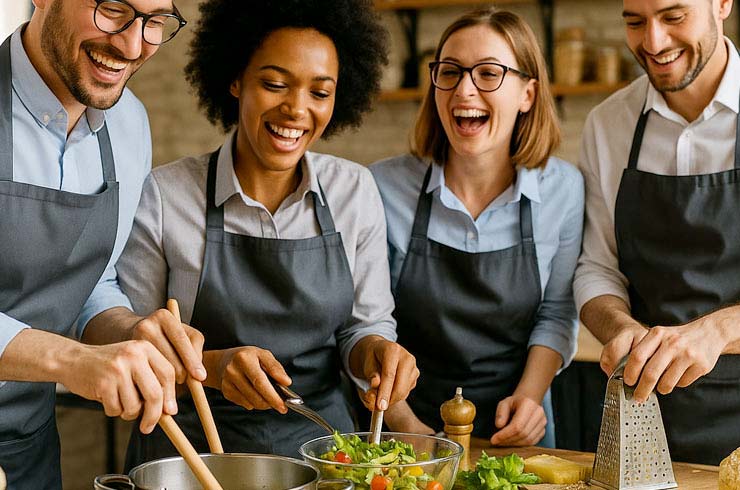Can a recipe improve internal company communication? Can an apron become a leadership tool?
Culinary team-building activities are revolutionizing the concept of team building, transforming the kitchen into a creative and collaborative space where empathy, communication, and teamwork flourish.
In both small businesses and large organizations, these gastronomic experiences are proving to be an effective, enjoyable, and deeply human formula for strengthening work teams.
Far from mere entertainment, they are a strategic investment in well-being, workplace atmosphere, and collective performance.
In this article, we explore the reasons why the kitchen is an ideal setting for enhancing professional relationships and present the best culinary team-building activities designed to inspire, motivate, and unite through flavor.
Why Choose Culinary Activities to Foster Teamwork?
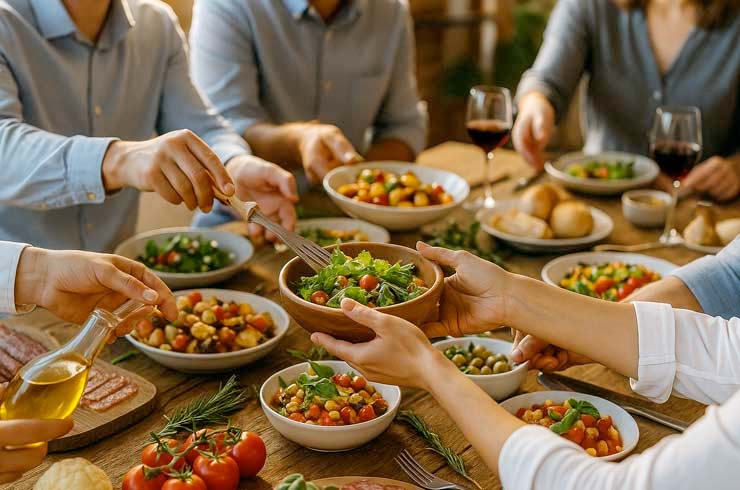
Culinary team-building activities are not just a passing trend. They have become a key tool for companies that understand human capital as their most valuable resource.
In a time when fluid communication, effective collaboration, and emotional well-being define the difference between a productive team and a dysfunctional one, the kitchen provides a perfect environment for creating authentic and lasting connections.
1. A Universal Language: Food Brings Us Together
Regardless of age, culture, or role within the company, we all connect through food. The kitchen acts as a natural bridge that breaks down hierarchical and cultural barriers, encouraging horizontality and active participation.
This relaxed atmosphere makes it easier for team members to get to know each other from a more human perspective, leading to stronger and more genuine relationships.
2. Learning by Doing: The Power of Experiential Learning
One of the reasons why team-building dynamics through cooking workshops are so effective is that they combine theory and practice in real time.
While preparing a dish, participants must plan, communicate, solve problems, and make shared decisions. All of this takes place in a playful environment that enhances learning retention and fosters positive emotional bonds within the group.
3. Safe Spaces to Experiment and Fail
The kitchen provides an ideal setting to take on challenges without fear of failure. A dish that’s too salty or a less-than-perfect presentation becomes an opportunity to laugh, learn, and improve.
This creates a culture of tolerance toward mistakes, which can be transferred to the workplace—where errors are seen as part of the innovation process rather than personal failures.
4. Development of Soft Skills
- Effective communication: essential for coordination and achieving a shared culinary goal.
- Leadership: each participant takes on different roles depending on the dynamic, helping to identify natural leadership profiles.
- Conflict resolution: from disagreements over ingredients to real-time decisions, negotiation and active listening are encouraged.
- Time and resource management: cooking requires following structured steps under time pressure, mirroring demanding work environments.
5. Emotional Well-being and Motivation
Participating in culinary team-building activities increases the sense of belonging, reduces stress, and boosts motivation.
The relaxed atmosphere, sensory enjoyment, and satisfaction of shared achievement activate neurotransmitters linked to well-being—such as dopamine and oxytocin—creating a highly positive impact on team morale.
6. Adaptable to Any Type of Company
Whether it’s a small team or a large department, these activities can be scaled and customized. From themed dinners in elegant settings to outdoor cooking challenges, proposals can be adapted to each organization’s profile, size, and needs.
In cities like Zaragoza, for instance, there’s a growing range of fun cooking activities for work groups, with tailored urban and rural experiences.
7. Long-Lasting Results
Unlike one-off events, culinary experiences leave a lasting emotional imprint. Shared memories, anecdotes, and collective achievements build a common narrative that strengthens team identity. Moreover,
The benefits translate into a tangible improvement in workplace atmosphere, operational efficiency, and talent retention.
In short, embracing culinary team-building games is not only an innovative approach to people management, but also a comprehensive strategy that impacts multiple levels: emotional, social, operational, and organizational. And best of all… it’s fun!
Why Choose Culinary Activities to Foster Teamwork?
Culinary team-building activities are not just a passing trend. They have become a key tool for companies that understand human capital as their most valuable resource. In times where smooth communication, effective collaboration, and emotional well-being make the difference between a productive team and a dysfunctional one, the kitchen offers the perfect setting to build authentic, lasting connections.
1. A Universal Language: Food Brings Us Together
Regardless of age, culture, or role within the company, we all relate to food. The kitchen acts as a natural bridge that breaks down hierarchical and cultural barriers, encouraging a flat structure and active participation.
This relaxed environment helps team members connect from a more human perspective, creating stronger and more genuine relationships.
2. Learning by Doing: The Power of Experiential Learning
One of the reasons why team-building dynamics through cooking workshops are so effective is that they combine theory and practice in real time.
When preparing a dish, participants must plan, communicate, solve problems, and make shared decisions. All this happens in a playful setting that encourages learning retention and the creation of positive emotional bonds within the group.
3. Safe Spaces to Experiment and Fail
The kitchen provides an ideal framework for taking on challenges without fear of failure. An over-salted stew or an imperfect presentation are opportunities to laugh, learn, and improve.
This fosters a culture of failure tolerance that can be transferred to the workplace, where mistakes are accepted as part of the innovation process rather than personal failures.
4. Development of Soft Skills
- Effective communication: essential for coordination and achieving a shared culinary goal.
- Leadership: each participant takes on different roles depending on the dynamic, helping to identify natural leadership profiles.
- Conflict resolution: from disagreements over ingredients to real-time decisions, these activities foster negotiation and active listening.
- Time and resource management: cooking requires following ordered steps under time pressure, simulating demanding work environments.
5. Emotional Well-being and Motivation
Participating in culinary team-building activities increases the sense of belonging, reduces stress, and boosts motivation.
The relaxed environment, sensory pleasure, and the satisfaction of shared achievement activate neurotransmitters associated with well-being—such as dopamine and oxytocin—creating a highly positive impact on group morale.
6. Adaptability for All Types of Companies
Whether it’s a small team or a large department, these dynamics can be scaled and customized. From themed dinners in elegant settings to outdoor culinary challenges, the proposals are adapted to the profile, size, and needs of each organization.
In cities like Zaragoza, for instance, there’s a growing range of fun cooking activities for work groups, with tailored urban and rural experiences.
7. Results That Last Over Time
Unlike one-off events, culinary experiences leave a lasting emotional impression. Shared memories, anecdotes, and collective achievements create a common narrative that strengthens team identity.
Moreover, the benefits translate into tangible improvements in workplace climate, operational efficiency, and talent retention.
In short, embracing culinary team-building games is not only an innovative approach to people management but also a comprehensive strategy that impacts multiple levels: emotional, social, operational, and organizational. And best of all… it’s fun!
Benefits of Culinary Dynamics for Small and Large Companies
Team-building dynamics through cooking workshops have become a versatile and effective tool across businesses of all sizes.
From executive teams to operational staff, these experiences offer tangible benefits reflected in both performance and individual well-being. Below, we break down the main advantages that make these activities a highly profitable investment for any company.
1. Strengthen the Sense of Belonging
One of the most valued aspects by participants in these dynamics is the strengthening of their connection with the company.
Sharing an experience outside the usual work context, in a playful and collaborative setting, helps employees feel part of a whole, reinforcing group identity and commitment to shared goals.
2. Improve Internal Communication
Cooking requires coordination, active listening, and clear messaging. During these activities, participants practice effective communication, which they then bring back to the workplace.
Misunderstandings decrease while trust and mutual understanding grow among colleagues.
3. Foster Creativity and Innovation
Coming up with a menu, trying new combinations, or facing a culinary challenge stimulates lateral thinking. This mental openness is key to successfully tackling daily business challenges.
Gastronomic team-building ideas for companies often involve real-time problem-solving, boosting mental agility and shared innovation.
4. Promote Interdepartmental Cohesion
Often, company teams operate in silos: marketing doesn’t talk to sales, production doesn’t connect with logistics.
Group culinary dynamics mix profiles and departments, facilitating interaction among people who don’t usually collaborate directly.
This improves overall organizational coordination and opens communication channels that were previously closed.
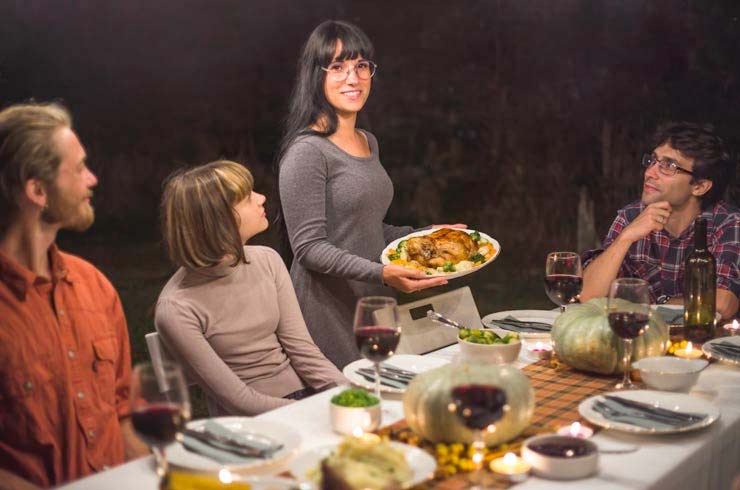
5. Reveal Hidden Talents
These activities allow teams to observe each other in a different context, where skills that go unnoticed in daily routines may emerge.
From leadership and strategic thinking to emotional intelligence and empathy, many competencies surface during a culinary team-building activity.
6. Reduce Stress and Improve Workplace Atmosphere
The pace of work can create tensions that affect the overall environment. Cooking together, sharing a meal, and enjoying the process help release stress, improve mood, and foster a more relaxed and friendly atmosphere.
The result is a more emotionally balanced team that’s more willing to collaborate.
7. Increase Talent Retention
Employees increasingly value companies that care about their well-being and personal growth. Initiatives like culinary team-building activities show a commitment to the holistic development of people, strengthening emotional ties to the organization and reducing staff turnover.
8. Suitable for Different Profiles and Hierarchical Levels
Unlike other team-building activities that may require physical abilities or specific technical knowledge, culinary experiences are accessible to everyone.
Regardless of age, position, or level of experience, anyone can participate, learn, and enjoy. This creates a level playing field and a space where everyone feels equally valued.
9. They’re Memorable Experiences
The combination of excitement, flavor, creativity, and play turns these activities into unforgettable memories.
The positive emotions associated with the experience reinforce the group’s collective memory and generate a shared narrative that lasts over time, contributing to a strong and positive organizational culture.
10. They Strengthen Employer Branding
A company that invests in fun cooking activities for work teams projects a modern, inclusive, and people-centered image.
This not only improves the internal atmosphere but also positions the organization as an attractive place to work, making it easier to attract talent and strengthen its reputation.
Ultimately, fun team-building dynamics based on gastronomy nourish not just the stomach but also the minds and spirits of the team. Investing in them means betting on a more human, cohesive, and sustainable business future.
6 Ideal Culinary Games for Team Cohesion in Companies
There are many ways to incorporate cooking into group dynamics, but only a few combine fun, creativity, and tangible results in terms of teamwork. Below, we present six standout culinary team-building activities that excel at transforming work teams—designed and hosted by Rutica 41 with a balanced mix of professionalism and playfulness.
1. Cooking Party in Teams

One of the most popular fun team-building dynamics. Participants are divided into groups to face a shared culinary challenge: creating a full menu within a limited time. Each team must organize, assign roles (chef, assistants, plating, etc.), and collaborate to produce a tasty and visually appealing result. Ideal for developing leadership, planning, and cooperation skills under pressure.
Learn more about Cooking Party in Teams
2. Clandestine Dinner
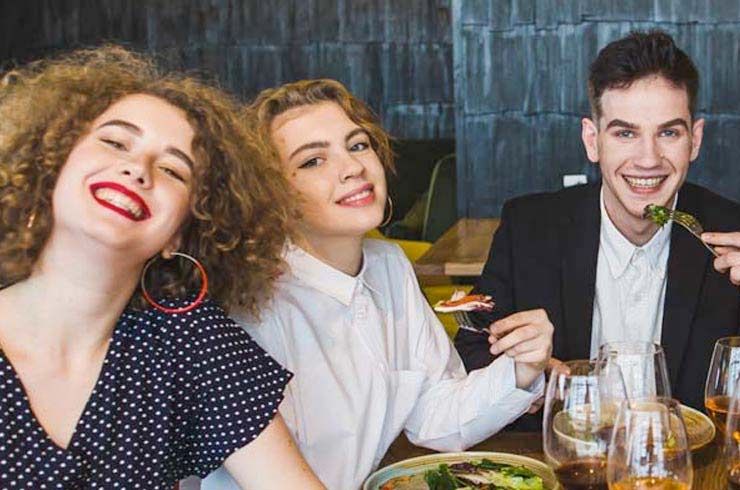
A sophisticated and mysterious proposal that turns the culinary experience into an adventure. This activity combines a gourmet dinner with theatrical elements and collaborative challenges that encourage creativity and interaction among participants.
Perfect for teams that already know each other and are looking for an original, immersive, and emotionally rich culinary team-building activity.
More details about Clandestine Dinner
3. Gastronomic Gymkhana
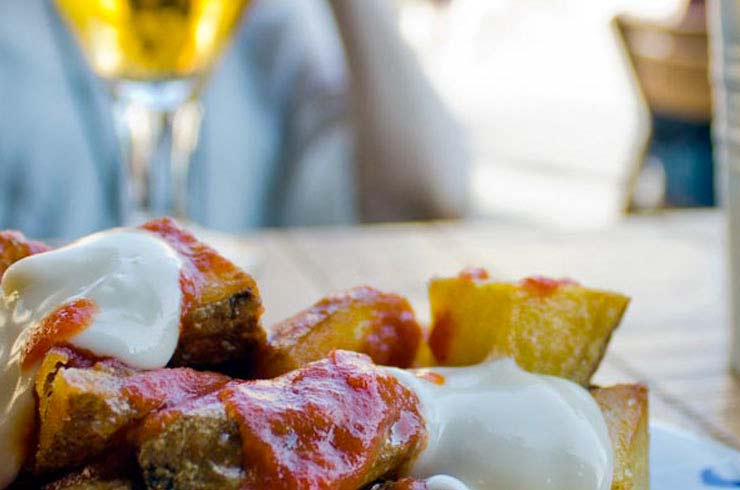
A mix of play, exploration, and gastronomy in the heart of Zaragoza. Teams move through different points in the city, solving clues and challenges related to local culinary culture.
One of the best group dynamics for encouraging mental agility, teamwork, and knowledge of the surroundings. It enhances interdepartmental cohesion and boosts motivation through fun and friendly competition.
Explore the Gastronomic Gymkhana
4. Tapas Tour
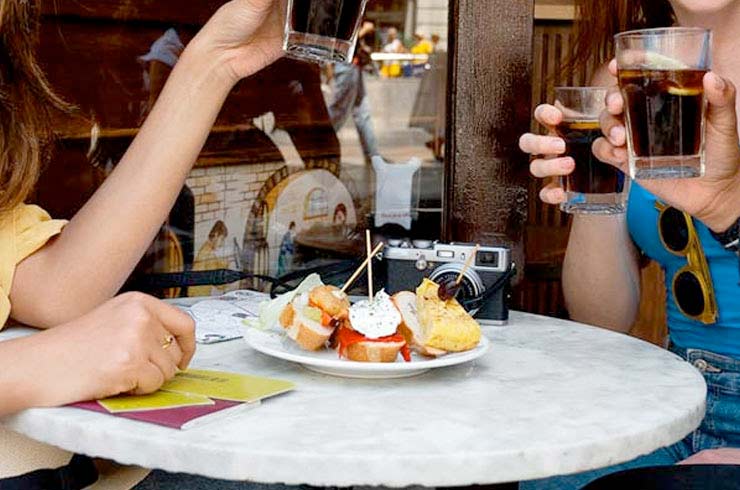
Tapas as an excuse to connect. This fun culinary activity for work teams in Zaragoza offers a guided route through some of the city’s most iconic bars.
Through flavor, conversation flows and bonds are strengthened in an informal setting. Ideal for integrating new teams or rewarding staff with a relaxed and enriching experience.
Explore the Tapas Tour by Rutica 41
5. Winery Tour in Zaragoza
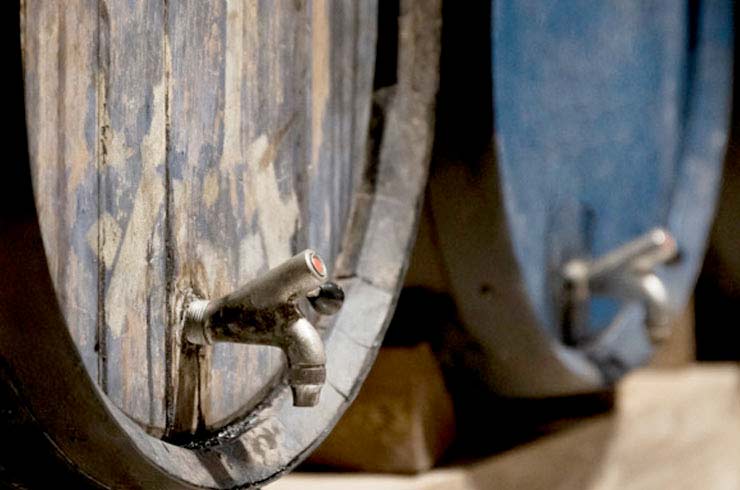
Wine as a vehicle for dialogue and discovery. This experience allows teams to leave the urban environment and connect in a slower-paced, natural setting.
The winery tour includes group activities, tastings, and spaces for shared reflection. Ideal for cultivating values like patience, active listening, and appreciation of process.
Discover the wineries with Rutica 41
6. Wine Tasting and Pairing

One of the most elegant and well-rounded gastronomic team-building ideas for companies. Guided tastings, paired with carefully selected food, become a sensory game where participants guess, compare, debate, and enjoy.
This dynamic enhances attention, sensory communication, and shared judgment. Perfect for closing training sessions or high-level strategic meetings.
Learn more about Wine Tasting and Pairing
These six proposals offer more than just culinary fun—they are designed to deliver real benefits in terms of cohesion, motivation, and performance.
They are gastronomic team-building games with purpose, created to turn flavor into a powerful tool for unity.
How to Organize an Effective Culinary Experience for Your Team
For culinary team-building activities to have a real impact on your team, it’s not enough to simply choose a fun experience.
Every detail must be strategically designed and planned to match your group’s goals and characteristics.
Below, we offer a practical guide covering the essential aspects you should consider when organizing a memorable and effective gastronomic experience.
1. Define Your Objectives: What Do You Want to Achieve?
Not all activities serve the same purpose. Are you aiming to improve communication? Break the ice among new teams?
Reward your staff after a successful project? Setting clear goals will help you choose the right experience and measure the outcomes more effectively.
- Integrating new employees: relaxed activities like a tapas tour.
- Fostering leadership: challenges such as the Cooking Party in teams.
- High emotional impact: immersive experiences like the Clandestine Dinner.
2. Know Your Group Well
The team’s profile will influence the choice of activity. Are they outgoing and extroverted? Do they prefer discretion and observation?
Adapting the activity to the group’s level of trust, cultural diversity, or age ensures that everyone feels comfortable and actively participates.
3. Choose the Most Suitable Format
There are various formats within the world of culinary team-building activities:
- Hands-on workshops: cooking together in a professional kitchen.
- Gastronomic tours: ideal for discovering local flavors as a team.
- Immersive experiences: where storytelling and atmosphere enhance emotional impact.
The choice of format will depend on the number of participants, available time, and the desired level of engagement.
4. Mind the Timing and Pace of the Activity
A great experience should balance energy and enjoyment. It’s important to respect the group’s rhythm: include moments to chat, reflect, savor, and laugh.
Avoid overloading the schedule and allow some spontaneity—this is also key to success.
5. Personalize the Experience
The best fun cooking activities for work groups in Zaragoza are those that include elements unique to the company: internal cultural references, recent achievements, project names, or even ingredients related to the brand.
This kind of personalization creates a stronger emotional bond and reinforces the sense of belonging.
6. Rely on Specialized Professionals
Working with experts in culinary team building makes all the difference. Teams like Rutica 41 design tailor-made experiences with attention to detail and a clear focus on business objectives.
The quality of the venue, local products, ambiance, and professional facilitation are all crucial to ensuring success.
7. Measure the Impact
After the experience, it’s a good idea to carry out a simple evaluation to assess satisfaction and gather ideas for future activities. You can use quick surveys, feedback sessions, or even informal conversations.
This step is key to consolidating the learning and reinforcing the emotional connection with the activity.
Quick Checklist to Organize Your Activity
- ✔️ Clear objective aligned with the team
- ✔️ Understanding of the group and its preferences
- ✔️ Suitable format and duration
- ✔️ Personalized and memorable experience
- ✔️ Professional facilitators
- ✔️ Post-activity impact assessment
Organizing an effective culinary team-building activity is not just a matter of logistics—it’s about vision. Turning a simple gathering into a transformative experience requires intention, creativity, and insight.
And when done right, the results speak for themselves: more united, motivated teams, ready to face any challenge.
Zaragoza: The Ideal Destination for Fun Culinary Activities for Companies
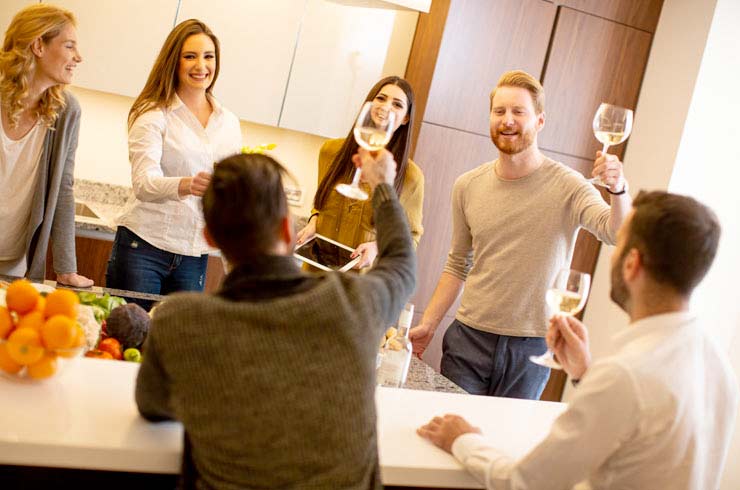
In the heart of northeastern Spain, Zaragoza is becoming one of the top destinations for organizing fun cooking activities for work teams.
Its blend of cultural heritage, gastronomic richness, and excellent connectivity makes it the perfect setting for hosting memorable and effective team-building experiences.
1. A Strategic Location for Teams Across Spain
Zaragoza is well connected by high-speed train (AVE), highways, and an airport, making it easy for teams from Madrid, Barcelona, Valencia, or Bilbao to arrive in under three hours.
This accessibility makes the city an ideal option for both local businesses and large corporations with teams spread across the country.
2. A Rich and Diverse Gastronomic Scene
The Aragonese capital boasts a strong culinary tradition that blends the best of classic recipes with innovative approaches. Creative tapas, locally sourced products, historic wineries, and a new wave of talented chefs make Zaragoza a paradise for food lovers.
This environment is ideal for developing team-building cooking workshops that genuinely engage participants.
3. Modern Infrastructure and Spaces with Character
From professional kitchens for workshops to charming courtyards, private dining rooms in restaurants, or centuries-old wineries in the nearby countryside, Zaragoza offers versatile spaces for all kinds of culinary team-building activities.
This allows experiences to be tailored to the group size, weather, or desired vibe (urban, rural, informal, gourmet…).
4. A Perfect Blend of Culture and Cuisine
One of Zaragoza’s greatest advantages is the ability to combine gastronomy and culture in a single day.
Teams can take part in a gastronomic gymkhana through the historic city center, visit the Central Market, enjoy a wine tasting at a centuries-old winery, or explore Mudejar art while sampling local products. Each experience becomes a multisensory journey that enriches the team from many angles.
5. Ideal Climate for Year-Round Activities
With over 250 sunny days per year, Zaragoza is perfect for outdoor activities in almost any season. This expands the range of possible experiences—from tapas tours around the city to culinary competitions in open-air venues or visits to farms and wineries in the province.
6. Specialized Industry Professionals
One of Zaragoza’s keys to success is the presence of teams like Rutica 41, experts in designing and executing gastronomic team-building ideas for companies.
Thanks to their knowledge of the region, network of local collaborators, and expertise in team dynamics, they can adapt each activity to the objectives, profile, and culture of the client company—guaranteeing a smooth, professional, and memorable experience.
7. Options for All Tastes and Budgets
From small businesses looking for an affordable yet impactful day to multinationals seeking premium events, Zaragoza offers a wide range of options that suit every budget without compromising quality or authenticity. Its value for money is among the best in the country.
In short, Zaragoza not only provides the perfect physical setting for developing gastronomic team-building games, but also offers an emotional, cultural, and human context that enhances the experience.
It’s a city that inspires, connects, and transforms. That’s why more and more companies are choosing this destination to build stronger teams through flavor.
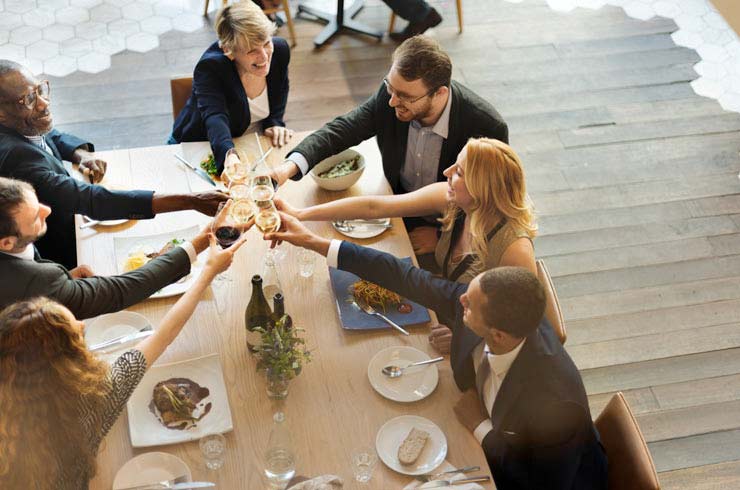
Conclusion: Cohesion, Creativity, and Flavors That Unite
More Than Entertainment: An Investment in Team Culture
Culinary team-building activities are not just occasional entertainment. They are real tools of transformation within modern organizations, capable of boosting communication, empathy, and teamwork through memorable experiences.
Cooking together means collaborating, listening, improvising, laughing, and learning. It’s about facing a shared challenge where all ingredients—both human and culinary—matter.
And when brought into the workplace, it translates into more connected, motivated, and effective teams.
Experiences That Become Collective Memories
From a Cooking Party in teams to a wine tasting and pairing, or a gastronomic gymkhana through Zaragoza’s historic center, each experience offers more than flavor—it offers cohesion, creativity, and shared pride.
The true value of these dynamics lies in their ability to generate positive emotions and lasting bonds.
These are experiences that strengthen a team’s emotional memory and build a shared narrative that reinforces corporate identity.
Zaragoza: The Ideal Setting to Savor Teamwork
Choosing a destination like Zaragoza amplifies these benefits. Its accessibility, cultural identity, and culinary richness turn any gastronomic team-building proposal into a full immersion where the senses and emotions take center stage.
The city offers unique venues to enjoy these experiences—from centuries-old wineries to cutting-edge urban kitchens—allowing for tailor-made activities adapted to every company and team profile.
Rutica 41: Experts in Creating Bonds Through Flavor
At Rutica 41, we help you design activities that resonate with your team’s essence. We create tailor-made experiences aimed at generating real impact on group dynamics by combining flavor, strategy, and emotion.
Ready to transform your team through gastronomy? Discover all our proposals in the Gastronomic Team Building section and let experts in cohesion, culture, and cuisine guide you.

